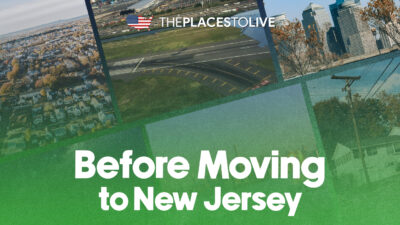Things to Know Before Moving to Vermont: Your Complete Vermont Lifestyle Guide
Moving to a new state can be exciting but also challenging. If you’re considering relocating to Vermont, knowing what to expect helps make your transition smooth and successful. This post covers the essential things to know before moving to Vermont, offering a detailed Vermont lifestyle guide and practical moving to Vermont tips. We’ll explore Vermont’s unique lifestyle, cost of living, housing options, job market, paperwork, and how to integrate into local communities.
Whether you’re drawn by Vermont’s natural beauty, rural charm, low crime, or vibrant outdoor activities, this guide is designed to prepare you for all the important steps ahead.
Overview of Vermont Lifestyle Guide

Vermont embodies a distinct lifestyle centered on rural charm, a close-knit community spirit, and a strong connection to nature. The pace here is more relaxed compared to big cities, which appeals to many newcomers.
Outdoor recreation defines life in Vermont. Activities like hiking, skiing, cycling, and fishing are year-round staples. Seasonal festivals and farmers markets foster community interaction and celebrate Vermont’s agricultural heritage. If you love fresh air and small-town friendliness, you’ll find it here.
Climate-wise, Vermont experiences four clear seasons. Winters are long and snowy, requiring preparation for cold weather, snow removal, and heating. Summers are mild and perfect for outdoor fun. Spring brings a unique “mud season,” where melting snow makes rural roads messy and travel a bit tricky. Fall is famous for vibrant foliage and harvest festivals.
This seasonal rhythm influences daily living—impacting everything from driving conditions to home heating requirements. Appreciating Vermont’s climate swings is crucial as part of your things to know before moving to Vermont and key to successfully relocating to Vermont with minimal surprises.
Vermont Cost of Living Breakdown
Understanding the Vermont cost of living helps you budget and plan wisely.
Housing Costs in Vermont
The median home price in Vermont is approximately $205,000, which is below the national median of around $230,000. Homeownership dominates the residential landscape, with about 70% of Vermonters owning their homes. Renting is less common, roughly 23%, and rental options can be limited. If you plan to rent, start your search early and expect competitive demand.
Utilities and Heating
Utilities run about 17% higher than the U.S. average due mainly to heating during long, cold winters. Vermont homes often rely heavily on heating oil, propane, or wood stoves, so budgeting for increased winter energy costs is essential.
Transportation Expenses
Transportation costs in Vermont are about 78% of the national average. This reflects generally shorter commutes and less traffic congestion. However, Vermont is a rural state—public transit infrastructure is limited outside urban areas like Burlington, making car ownership nearly a necessity. Gas prices and vehicle maintenance should be factored in.
Taxes and Overall Affordability
Property taxes in Vermont tend to be higher relative to home values when compared to other states. State income tax and sales taxes are moderate but contribute to the overall tax burden. These costs are balanced by Vermont’s high quality of life, safety, and community benefits.
Overall, Vermont’s cost of living is slightly below or near the U.S. average but varies by location.
Moving Supplies Recommendation
To ease your move and protect your belongings, consider premium moving boxes and supplies available from trusted providers like U-Haul and PODS. They offer durable packing materials and container rental services ideal for flexible, affordable moving options.
Moving to Vermont Tips

Timing your move and handling logistics thoughtfully will reduce stress and help you settle quickly.
Best Time to Move
The ideal window to move to Vermont is between late spring and early fall. This avoids winter snowstorms and the unpleasant spring mud season, which can make travel difficult on rural roads.
Essential Paperwork
After relocating, promptly update your:
- Driver’s license
- Vehicle registration
- Voter registration
Vermont’s DMV website allows many of these tasks to be completed online or at local DMV offices. Registering to vote is also streamlined through state election portals.
Choosing Moving Companies
Hiring the right movers can make a big difference. Full-service companies like Allied Van Lines and Mayflower provide professional assistance. For more flexibility and cost control, container moving services such as PODS allow you to pack and move on your schedule.
Moving Supplies and Tools
For a safer move, invest in high-quality moving supplies like U-Haul moving box kits or Amazon’s selection to securely pack fragile items. Using GPS navigation systems is advisable, especially if you’re unfamiliar with Vermont’s rural routes. Providers like Progressive Auto Insurance offer coverage tailored for newcomers navigating new terrain.
Things to Know Before Moving to Vermont Regarding Employment and Economy
Job Market and Major Industries
Vermont’s economy is diverse and growing in sectors like:
- Technology
- Clean energy and sustainability
- Food and beverage production
- Creative arts and small business startups
The state supports entrepreneurship and innovation, making it attractive for professionals seeking work in these fields.
Remote Work Potential
Remote working opportunities are increasing, particularly in urban and suburban areas where broadband and coworking spaces improve connectivity. However, rural Vermont still faces challenges with reliable internet access, so evaluate your location carefully if telecommuting is key to your livelihood.
Housing and Neighborhoods to Consider
Where you settle affects your lifestyle and ease of integration.
Popular Cities and Towns
- Burlington: Vermont’s largest city, featuring a vibrant cultural scene, strong job market, shopping, dining, and educational resources.
- Montpelier: The small state capital with a charming historic downtown.
- Stowe, Waterbury, Waitsfield: These towns attract lovers of the outdoors with skiing, hiking, and breathtaking scenery.
Urban vs. Rural Living
Urban areas provide more amenities: diverse employment, healthcare facilities, schools, and social activities, but at a higher cost and faster pace.
Rural Vermont appeals with tranquility, affordable housing, and direct access to nature but has fewer services and often limited broadband. Consider your lifestyle preferences and work needs when choosing.
Education and Healthcare

Education Quality in Vermont
Vermont is recognized for strong public schools, smaller class sizes, and community engagement in education. Families benefit from personalized attention and safer learning environments.
Higher education opportunities include the University of Vermont (UVM) in Burlington, a respected institution offering various academic and research programs plus community resources.
Healthcare Accessibility
Healthcare facilities and providers are readily accessible in larger towns and cities. Rural residents may have to travel farther for specialized care but benefit from Vermont’s state-supported healthcare programs designed to enhance coverage and reduce barriers.
Product Suggestions in Context
- Moving Supplies: Secure your belongings with premium moving boxes from U-Haul or Amazon.
- Transportation Aids: Newcomers should consider GPS devices to navigate Vermont’s rural roads confidently. Pair with comprehensive auto insurance options from providers like Progressive, which specialize in coverage for new residents.
- Home Setup: Improve your new Vermont home’s safety and convenience by installing smart security systems, such as Ring doorbells or Nest thermostats.
FAQs About Moving to Vermont
What is the Vermont cost of living compared to other states?
Vermont’s living expenses are slightly below or near the national average. Housing is more affordable than in many states, but you’ll pay more for utilities and property taxes.
How do I prepare for Vermont winters when moving?
Plan your move for warmer months. Invest in reliable heating systems, snow shovels, ice melt, and ensure your vehicle is winter-ready with good tires and emergency kits.
What documents do I need for relocating to Vermont?
Update your driver’s license, vehicle registration, and voter registration promptly. Vermont’s DMV and election websites provide online and in-person options.
What are the best towns in Vermont to live in?
Popular choices include Burlington for urban amenities, Montpelier for historic charm, and Stowe, Waterbury, and Waitsfield for outdoor recreation and scenic rural living.
Is Vermont good for remote workers?
Yes, particularly in cities and suburbs with improved broadband and coworking facilities. Rural internet infrastructure is growing but remains spotty in some areas.
Conclusion: Plan Your Move with These Things to Know Before Moving to Vermont
Vermont offers a unique lifestyle rich in community focus, outdoor living, and scenic beauty. Knowing the nuances of its climate, cost of living, and local culture is key to a successful relocation.
Plan your move carefully
: choose the right season, complete necessary paperwork early, select trusted movers, and consider your housing options in line with your lifestyle and work needs.
Start your Vermont adventure prepared, informed, and confident!





